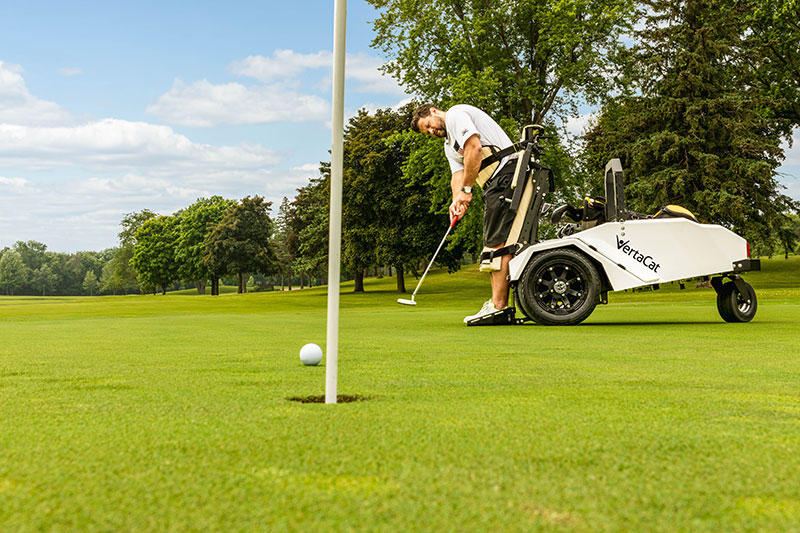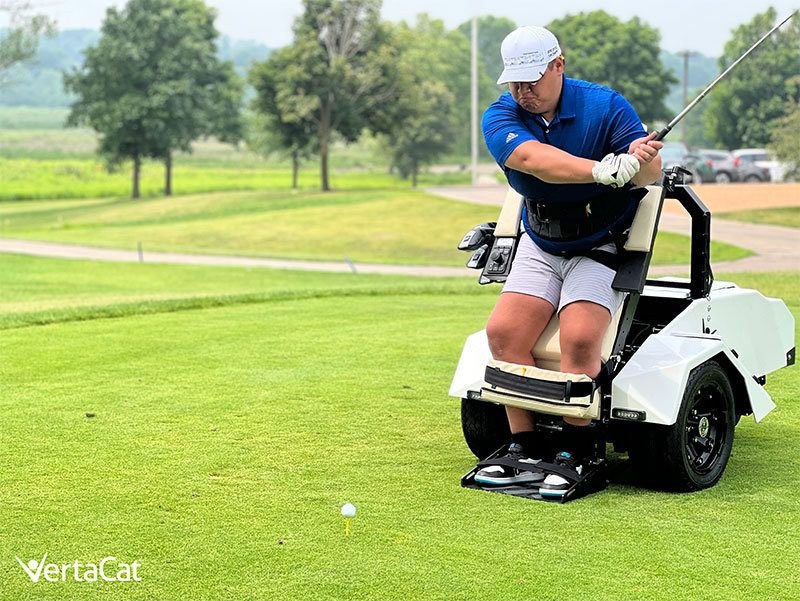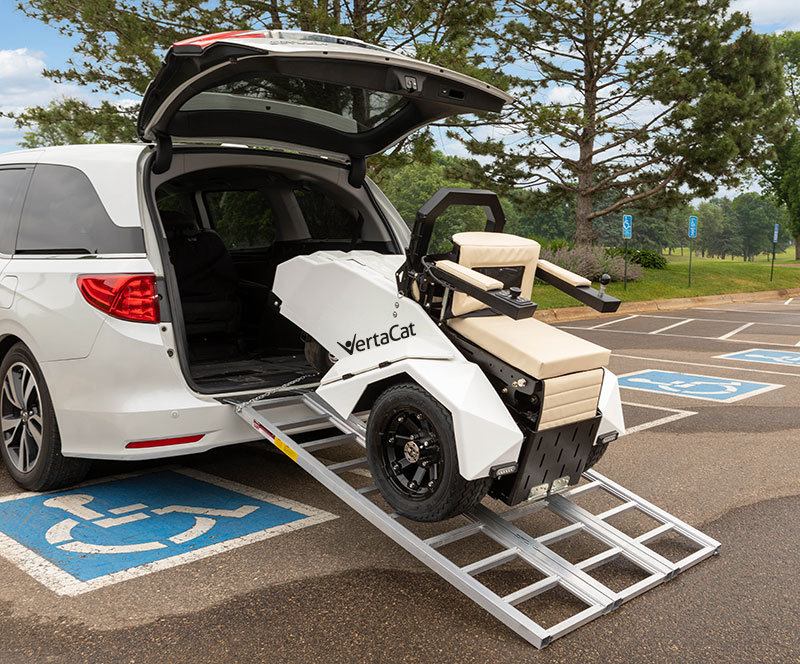VertaCat Mobility Rider Provides Golfers an Uplifting Experience
By Jeff Nicholson, VertaCat
At the forefront of today's adaptive sports revolution is VertaCat, a new all-terrain mobility rider that lifts people with limited mobility into a standing position enabling challenged walkers to play golf and other sports again.
Built entirely in the USA, VertaCat reshapes the golfing experience for those with physical challenges. To be sure, VertaCat mobility riders are also being used for other outdoor activities such as hunting, fishing, archery, gardening and photography.
But golf has been the most popular activity, with VertaCat enabling users to again savor the joy of playing the game with friends and family. There are an estimated 600,000 disabled golfers in the U.S. and another 6.2 million golfers who left the sport after becoming disabled.

"No matter what type of lower body challenges you're dealing with, VertaCat's technology enables every golfer to perfect his or her personal, unique style in the game," notes Tim Nicholson, president and co-founder of VertaCat. "Golf can be an uplifting outdoor adventure. Now, people with lower body challenges have access to technology that offers a truly rewarding experience."
How does VertaCat work?
VertaCat's electric stand-up assist system provides padded chest, waist and knee straps that securely lift you into an upright stance where you can grasp a golf club with one or two hands. These straps eliminate slipping and prevent the friction and skin irritation that can occur during raising and lowering.
Golfers with mobility challenges will also appreciate details such as the fold-out arm rests that move out of the way and steering that accommodates the availability of a single hand.
Designed With Adaptive Golfers in Mind
After consultation with adaptive golfers, VertaCat incorporates features including:
- A 'Get Grounded' design to position the standing golfer onto the ground for the best possible golfing experience.
- Pivot-in-Place Positioning Technology to enable golfers to maneuver in place to the right position for their swing.
- Anti-jerk acceleration and deceleration that tempers the vehicle's movement for a jerk-free ride on the course.
- A steepness warning accelerometer that warns when the VertaCat exceeds a 17 percent or more grade.
- A 58v Lithium Phosphate Battery that will last for an 18-hole round of golf, even on a hilly course.
Each VertaCat is equipped with turf-friendly, lightly treaded tires that provide the traction vital to negotiating hills, but are extra-wide and soft so they won't damage the greens of the golf course.

Overcoming the Challenges of Limited Mobility
There are many reasons someone may experience limited mobility and lower body challenges. Whether due to injury, amputation, paralysis, chronic illness such as multiple sclerosis, or any other cause, experiencing limited mobility can be difficult at any point in a person's life.
Participating in adaptive sports, such as golf, improves people's mental and physical health, boosts self-esteem, reduces stress and increases resiliency.

An example is golfer Max Togisala. In 2022, a ski accident in Idaho severed his spinal cord at the T-12 level, leaving Max paralyzed from the waist down. But with Max's unwavering optimism and by finding the right adaptive equipment, he was able to play golf again, competing a mere nine months after the incident.
Max is now 20 years old and an avid golfer, using VertaCat to enable him to get back on the course and compete. Last July Max won the Seated Division and placed 17th overall at the USGA Adaptive Open held at Pinehust, NC. Max set a number of USGA records including shooting a 2 under par 70 on the second round.
Eliminating Barriers to Golf for People of all Abilities
While great advances have been made in adaptive sports from hockey and cycling to basketball and archery, golf has been a seemingly challenging activity to make more accessible. Some of those difficulties include:
- Poor golf course accessibility
- Golf course policies that make disabled golfers feel unwelcome
- Lack of access to specialized golf technology
- Limited battery life and instability of existing mobility riders.
"To be honest, this level of adaptive technology couldn't be imagined just a few years ago," concludes Tim Nicholson. "We'll keep striving for a world where mobility limitations will not hamper anyone's freedom to engage in golf, hunting, fishing, archery, skeet shooting or other favorite outdoor activities."
Getting Back into the Game
A final story of hope and inspiration: When Bob Tidy was diagnosed with a degenerative neurological disease, he gradually lost his ability to walk. "I've been playing golf since I was about 10 years-old and one of the worst parts about this disease I have is I couldn't play golf anymore," said Tidy.
Through his use of VertaCat, Tidy can now get back on the course in a way that's enhanced his life. "It's terrific for me to get back into the game again," he said. "I play with my buddies two or three times a week. It really brings a lot back into my life."
For more information, go to www.VertaCat.com or visit booth #627 at the Abilities Expo in Chicago.
Pre-Register for Abilities Expo Today...It's Free!